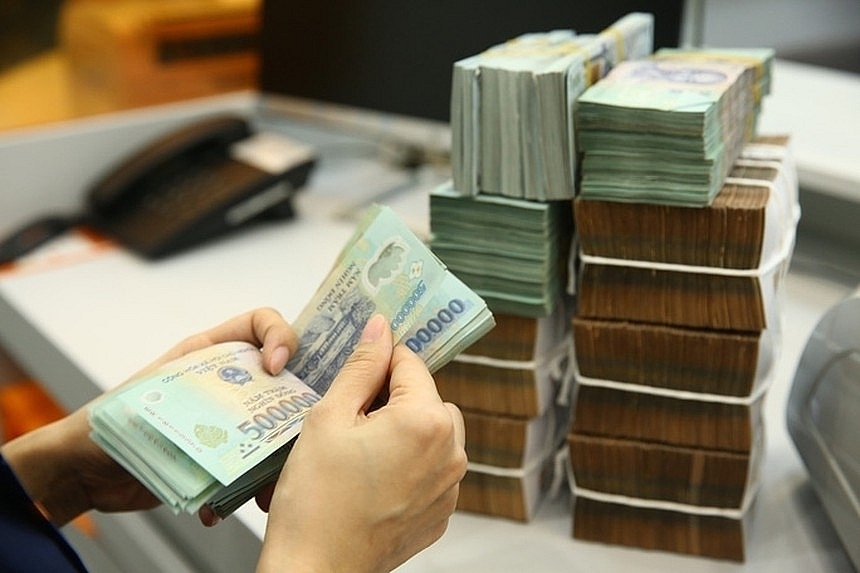Limited scope for lowering interest rates
If we solely consider monetary policy, there is very little room for interest rate reductions, not to mention the delay in the implementation of new policies. As a result, it is anticipated that fiscal policy will be more effective.

This is an argument made by Mr. Nguyen Minh Tuan, CEO of AFA Capital, on the State Bank of Vietnam's (SBV) recent execution of monetary policy.
The Ministry of Planning and Investment recently stated during a news conference that it believes there are problems with the existing monetary policy, which sometimes results in quick easing and tightening, making things harder for firms. Mr. Tuan asserts that our monetary policy is implemented gradually and that an ongoing rise or fall in interest rates will have an impact on economic activity.
Whether there will be another wave of interest rate reductions is the topic that many people are currently worried about. The State Bank of Vietnam's (SBV) Head of the Monetary Policy Department recently shared at the Annual Banking Forum 2023 that this year's objectives and tasks for monetary policy include managing inflation, ensuring growth, assisting businesses, and preserving macroeconomic balance and exchange rate stability.
Given that the interest rates established by the Federal Reserve (Fed) are already high and the margin for future interest rate decreases is thin, Mr. Tuan thinks that policymakers in 2023 will have limit ed room for movement. In the interim, if the central bank keeps lowering interest rates, it will need to maintain a stable exchange rate.
Given that the interest rates established by the Federal Reserve (Fed) are already high and the margin for future interest rate decreases is thin, Mr. Tuan thinks that policymakers will have limit ed room for movement in 2023. The challenge for exchange rate will need to be resolved if the central bank keeps lowering interest rates.
In fact, lowering interest rates, accepting a lower valuation of the Vietnamese dong (VND), and allowing the exchange rate to increase in order to encourage growth could be a possibility. However, the Head of the State Bank of Vietnam's Monetary Policy Department asserts that even a small error in monetary policy can have significant repercussions.
This suggests that the State Bank of Vietnam is exercising extraordinary caution in order to support the economy as much as possible within its capabilities. Therefore, if we anticipate a drop in interest rates, it is still feasible, but there are a lot of other factors to take into account.

The challenge for exchange rate will need to be resolved if the central bank keeps lowering interest rates.
There hasn't been any pressure on the exchange rate recently because the Fed stopped raising interest rates and interbank interest rates in Vietnam stayed stable at a high level (5%). Even if both exports and imports have decreased, Vietnam still benefits from a trade surplus, but it is not a serious problem.
"Additionally, according to the State Bank of Vietnam's statistics, $6 billion worth of foreign exchange reserves have been acquired. Therefore, if we have to pick between decreasing interest rates and supporting a 1-2% increase in the exchange currency, the latter could help the former partially. Since there are still conflicts between the central bank and commercial banks, I always want to boost the economy by decreasing the benchmark interest rate," said the CEO of AFA Capital.
Specifically, although the policy rate has been lowered, lending rates and deposit rates have not decreased significantly, as it takes time for these policy impacts to permeate. The time frame for monetary policy to have an effect on the market is about 3-6 months.
Another important consideration is whether or not decreasing interest rates actually helps the economy given that the rate of loan growth from the start of the year to the present is significantly lower than that of the year's end in 2022. The analyst claims that firms' lack of orders is a bigger problem right now than just interest rates. No matter how low credit rates are, it becomes challenging to handle the problem of production without customers in an economy like Vietnam. Therefore, in the near future, we must aggressively address domestic consumption, according to Mr. Tuan.
Moreover, the state's policies must directly reduce costs for businesses through fiscal policies such as taxes and fees. Even the use of banking services has proposals for banks to consider reducing service fees to enhance competitiveness and help businesses secure international orders. That is the fundamental solution.
"I can see that if we solely focus on monetary policy, the room for lowering interest rates will be very limit ed, not to mention its effects on the economy, considering the time needed for permeation. That's why I still have higher expectations for decisive fiscal policies. First, there should be a boost in public investment, especially by improving responsibility and commitment mechanisms for projects. Second, reducing various taxes and fees for businesses will help them allocate more resources for production and operations," concluded the CEO of AFA Capital.








